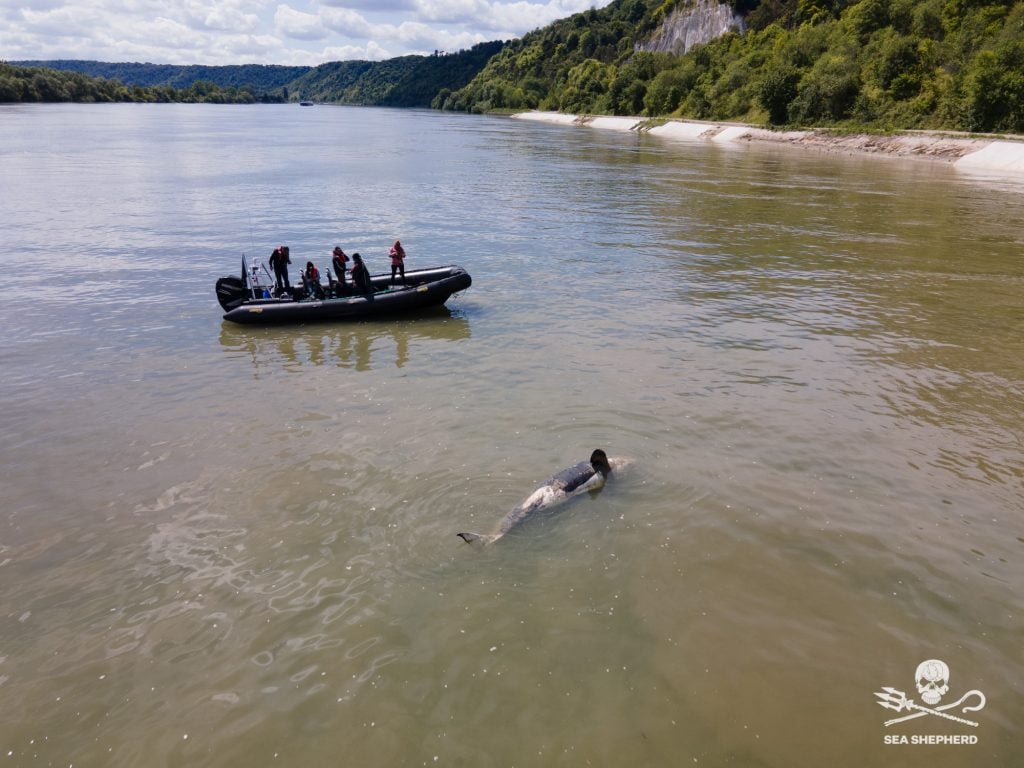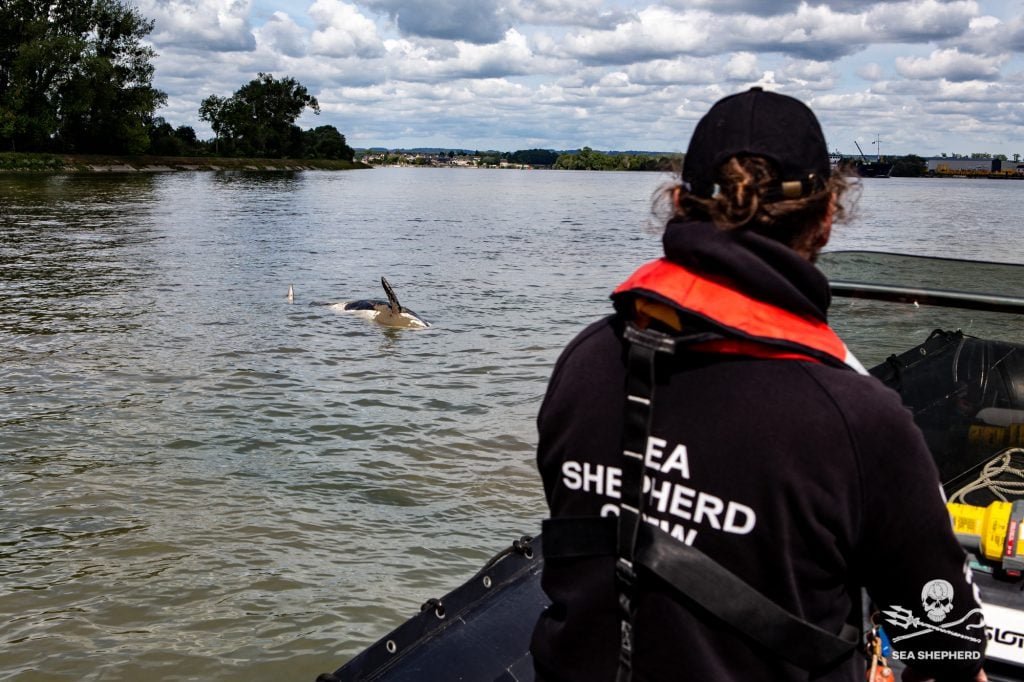The skeleton of a young female orca found dead in the Seine River, where she was trapped for weeks last month, will become part of the collection of the French National Natural History Museum (Muséum national d’Histoire naturelle) in Paris. The orca’s story was closely followed by the French public, which often gathered along the riverbanks to catch a sighting.
“It’s a rare and precious occasion for the museum to obtain the first complete skeleton of the Orcinus orca species,” the museum said in a June 14 statement. Such acquisitions “permit a wider scientific community to work on specimens using modern technology, so as to increase our knowledge of biodiversity and therefore, better protect it.”
However, the news comes amid controversy. Wildlife organizations have voiced concerns that too little was done too late to save the sick sea mammal.
“It was absolutely necessary to intervene as soon as [the orca] was in the mouth of the river, to prevent her from going further inland, because each day she spent in the Seine’s fresh water condemned her further,” said Lamya Essemlali, president of Sea Shepherd in France, a non-profit marine conservation activist group, speaking to Artnet News. “We bitterly regret the slow reaction time,” she added.
Sailors first reportedly observed the 13-foot-long orca on May 16 at the mouth of the Seine River in Normandy, near Le Havre. But attempts to guide it back to open waters using a team of international experts and orca sounds were not set into motion until Saturday, May 28, and they ultimately failed. By that time, the orca had moved well over 50 miles inland.

A Sea Shepherd boat found the orca’s carcass on May 30. Photo: Sea Shepherd.
Right before the mammal was to be euthanized due to signs of suffering and a fungal disease called mucormycosis, a Sea Shepherd boat found the orca’s carcass on May 30, its emaciated body drifting in the river, showing signs of illness and a painful death.
French authorities appeared to have relied mostly on the expertise of the local marine life observatory and study group Groupe d’Etude des Cétacés du Cotentin (GECC), which argued in the media that any intervention would stress the orca further, and that it might find its way to sea naturally.
“It’s very complicated to find solutions to try to persuade her to return towards salt water,” the GECC’s vice president, Gérard Mauger, told French media. The whale’s poor health meant “it’s more comfortable for her to be in a river, because it’s less agitated. She uses less energy,” he added.
However, for orca, “there is nothing calm or easy about being in a river,” Essemlali said. “The noise in that river is absolutely crazy,” she explained, due to intense boat traffic, disrupting the orca’s sonar navigation. Other comments from the GECC group, such as mistakenly identifying the orca as male despite weeks of observation, all suggested to Essemlali that competent experts and the French government were notified too late.
“They under-estimated the gravity of the situation,” she said, noting it was the GECC’s responsibility to tell authorities something needed to be done. “We followed it all from afar, thinking that real experts were working on it,” Essemlali said, adding that she regretted that assumption.
The GECC could not be reached for comment in time for publication. In a June 1 statement, however, Seine-Maritime prefect Pierre-André Durand, said accusations of inaction by authorities were “false.” He congratulated the “remarkable treatment of this unusual event, while assuring a proactive response and the implementation of technical measures adapted to the level of the situation.”
The orca autopsy is still pending, but initial results have shown its last meal dated prior to its captivity in the river. It is not clear yet if the orca contracted the fungal infection and fell ill prior to or during its journey down the Seine.







